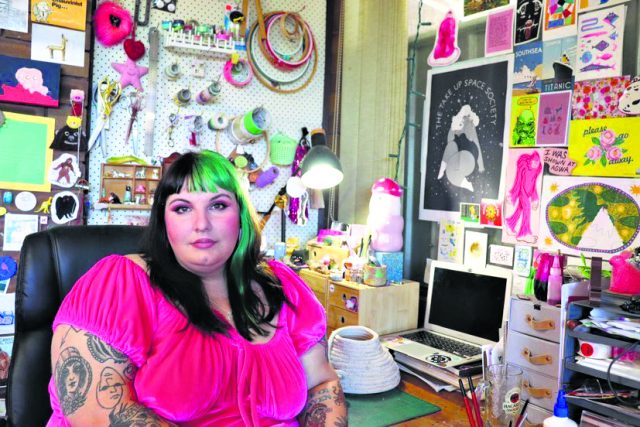When Curtin University sessional academic and artist Carla Adams noticed she had a slight fever on Tuesday March 15, the thought of contracting COVID made her incredibly anxious.
Now, roughly a week into the virus, she says that people need to lean on their support networks if they contract the disease, which is running rampant through Perth.
Ms Adams said she immediately took a RAT test at her Parkwood home that returned a faint positive reading, with a second test confirming that she had contracted COVID.
Worse than the diagnosis was the unknown.
“I guess I’d been quite anxious to get it, because you just don’t know what it’s like,” she said.
“If you get the flu, you know that it’s going to be three or four days, you’ll have a sore throat, you know the deal.
“With COVID there’s so many unknown factors.
“You don’t know if you’ll get very sick, will it just be a fever, you don’t know if you’ll get long COVID, there’s a lot of unknowns. So initially I was quite anxious but now that I’m in it, I’m not so nervous.”
She said she was thankful she was triple vaccinated because while she feels sick, with an array of symptoms, she believes it could have been much worse.
“Luckily for me there’s no lung or throat symptoms, mine are all gasto-intestinal, fever, trembling, all of the tattoos on my body are raised up like braille, which is strange.

It’s not that nice but I’m very lucky I’m triple vaccinated and I’m not in a worse position.
“The annoying thing about how I feel is that I feel average, I don’t feel very sick so I’m not sure I’m getting the proper rest that I need.
“I should probably be in bed but when you don’t feel very sick the temptation there is to just keep working right through it.”
While she is now on the mend, Ms Adams said people should be prepared, adding that your support networks would be incredibly important in isolation with the illness.
“You just have to be prepared,” she said.
“Get triple vaccinated, wear your mask, wash your hands, and if you catch it do you best to manage your symptoms, keep hydrated get your rest and lean on your support networks.
“Even just people reaching out and asking how you are is invaluable, it really helps your mental health if you have support available while you can’t leave the house.
“I think workplaces could step up and help out a little more, offer more support especially to casual workers who don’t have access to sick leave or holiday pay.”














